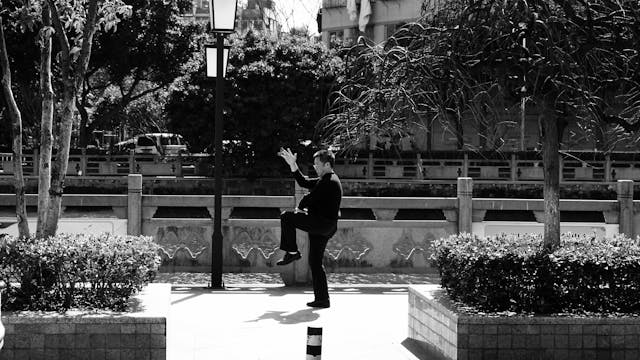Tai chi is a type of Chinese martial arts involving slow, intentional movements. This gentle form of exercise offers many great benefits, such as a relaxing and low-impact form of exercise that is accessible to a wide group of people. Like meditation and yoga exercises, tai chi involves intentional breathing, a meditative state of mind, and slow movements that are not intended to be strenuous. Tai chi can help improve balance and posture, increase flexibility, and enhance strength. However, a recent study suggests tai chi might also be useful in helping to lower blood pressure.
Can tai chi lower blood pressure?
Published just a few weeks ago in the Journal of the American Medical Association (JAMA), a new study suggests tai chi might be a useful tool in managing high blood pressure. High blood pressure, also known as hypertension, affects more than half of the American population over the age of 20 (according to the American Heart Association). Left untreated, hypertension can cause a number of poor health outcomes, including an increased risk for a heart attack, heart disease, kidney disease, stroke, vision loss, and more.
Researchers who published the study titled “Effects of Tai Chi vs. Aerobic Exercise on Blood Pressure in Patients with Hypertension” explored the results via a randomized clinical trial. This trial randomly assigned 342 adults in China who had been diagnosed with Prehypertension. The group was then split in half, where half of the group practiced tai chi and the other half performed an aerobic type exercise (such as jogging, brisk walking, climbing stairs, etc). Both groups were instructed to exercise for one hour four times per week. Each group followed the exercise plan for a year.
Findings of the study
The results of this tai chi study are certainly interesting — as the group who practiced tai chi experienced better drops in blood pressure readings than the aerobic exercise group. Researchers found that 22% of participants in the tai chi group had improved blood pressure readings that were now within the normal range (compared to only 16% in the aerobic exercise group). While these results are certainly promising, more research is needed in the realm of tai chi to make stronger conclusions.

How to lower blood pressure with Tai Chi
If you’re looking for a natural way to improve your blood pressure readings, practicing tai chi might be worth incorporating into your fitness routine. Practicing tai chi elicits a response from the body’s parasympathetic nervous system, a network of nerves that helps your body “rest and digest.” As such, practicing tai chi regularly can help your body better manage its stress response and, in turn, manage blood pressure levels.
Unlike other forms of exercise that require lots of equipment, tai chi can be practiced anywhere and requires no equipment. Even better, individuals of any fitness level can quickly learn tai chi. Not only is it worth a shot to help improve your blood pressure, but you may even find you enjoy its other benefits, such as improved cognitive function and strength.




